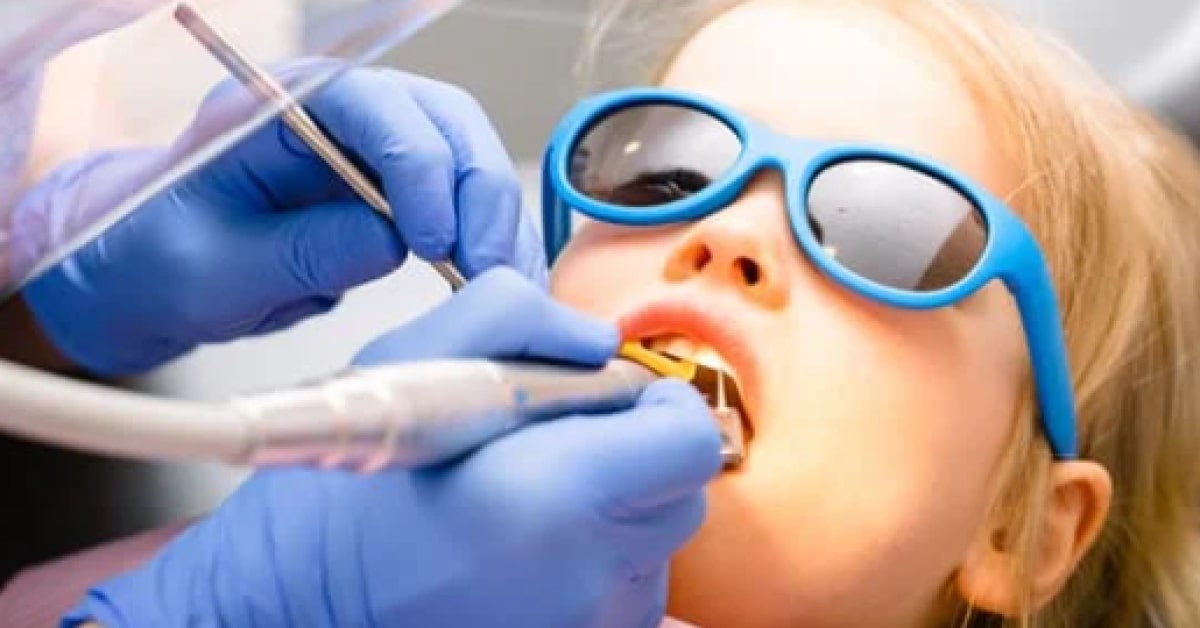Blog
May 08, 2023 • 10 mins readAlzheimers and Oral Health
Learn how Alzheimer's can affect oral health, and what steps you can take to maintain good oral hygiene. Find out how to recognize the signs of Alzheimer's.
Author
Danielle Duncan

In this Article
Up to 10% of the United State’s population suffers with Alzheimers, and 70% of those people suffer from advanced gum disease. It is thought that dementia is a huge factor in the improper care and oral hygiene in older adults 65 and older. But, did you know that it is possible that gum disease may increase the chances of developing Alzheimers and dementia later on in life?
It was the researchers at the School of Dentistry, University of Central Lancashire (UCLan), that first reported the link between gum disease and Alzheimer’s disease. After which, two new studies from the same school have demonstrated that they are further progressing in making a stronger connection between the mouth and brain function deterioration.
The results of these studies provided more evidence that the bacteria that causes gum disease may play a role in cognitive decline in patients. Porphyromonas gingivalis (P. Gingivalis), also known as gum disease, was found in the brain tissue of Alzheimer’s patients.
But, what can be done for oral health both before and after an Alzheimer’s diagnosis?
The first step is prevention, the importance of dental care routines at home are incredibly important. Almost all dental experts will guide their patients in how to properly care for their oral health at home.
Regular dental checkups to look for signs of gingivitis.
Just like with primary care doctor’s visits, routine dental exams and cleanings are an essential part to whole body health. These exams should be scheduled every six months, or at bare minimum, annually. If a patient suffers from oral decline, cavities, gum disease, or a general poor oral health, it may be important to increase these visits based on the dentist’s suggestion.
Tooth brushing at least 2x daily.
Using fluoride toothpaste and a soft toothbrush twice a day can help to reduce plaque buildup and bacteria on the gum line. Taking the time to brush your tongue while you brush your teeth can help to remove unwanted bacteria. If you aren’t confident in brushing your tongue, a tongue scraper is a great alternative.
Flossing.
Flossing allows you to reach the crevices between teeth that brushing simply cannot get to. It is important to note that with the increase in popularity of water flossers, you should still use a standard floss at least once per day to reduce build up between teeth. Water picks are great for removing larger debris, but less so for biofilm.
Mouthwash.
Antimicrobial mouthwashes help to keep harmful oral bacteria from building up inside your mouth. It is recommended to use alcohol-free mouthwash to prevent the development of dry mouth, unless expressly suggested by your dentist.
Avoid tobacco products and excessive alcohol consumption.
It’s no secret that tobacco products and smoking are a leading cause of gum disease and oral cancer. The best route here is to avoid these products altogether. The same is true for alcohol consumption, which can cause damage to the enamel of teeth.
If the patient who is being seen has already been diagnosed with Alzheimers or dementia, it is important to remember to keep oral health routines simple to follow, and to get any caretakers involved in their care.
Basic oral hygiene practices are difficult for any elderly patient, especially for those who are experiencing a decline in cognitive function. Slight modifications can be made to maintain adequate oral health to prevent further complications caused by a neglected oral health biome.
For caregivers, there are some things you can do to help make an oral health routine easier to accomplish.
Providing short, easy to follow instructions.
Taking the time to explain at home dental care by breaking them down into individual steps can help make it easier for your elderly patients to practice appropriate oral health care routines. Start with the first step, holding their toothbrush, and move through the steps such as putting the toothpaste on the brush, and then advising them to brush their teeth.
Teach by showing.
Some patients may require that you show them how it is done. Hold a toothbrush and show them how to guide it over their teeth, or guide their hand (with toothbrush in hand) to show them how it is done. Of course, this will all depend on how receptive and non-agitated the patient is.
Do it for them if they can’t do it themselves.
If the patient is unable to clean their own teeth and mouths, you may need to do it for them. Make sure to gently brush their teeth, gums, tongue, and roof of the mouth at least twice a day. It is best to do the last brushing after any liquid medications or the final meal of the day.
If the toothbrush seems to be a problem, switch it up.
Different brushes may be better for Alzheimer’s patients than others, some may find that soft bristled children’s toothbrushes are easier to handle than a standard brush. It is best to avoid electric brushes that may cause confusion or alarm in Alzheimer’s patients.
Allow their dentist to teach you how to floss or give you alternatives.
Using a proxabrush instead of regular floss may be recommended by a dental professional.
Be alert for any changes in the oral cavity or mouth pain.
Refusal to eat, strained facial expressions, or fidgeting with dentures may mean it is time to take a trip to the dentist.
Of course, caregivers and dental professionals will have to work together to improve and maintain an Alzheimer’s patient’s oral health. While some caregivers may be a little hesitant to book a dental appointment every six months or sooner due to a limited financial situation, billing medical insurance for the care your Alzheimer’s patients need can help to reduce the stress of finances while giving them the care they deserve.
Find out more today by talking to one of our knowledgeable staff members!



